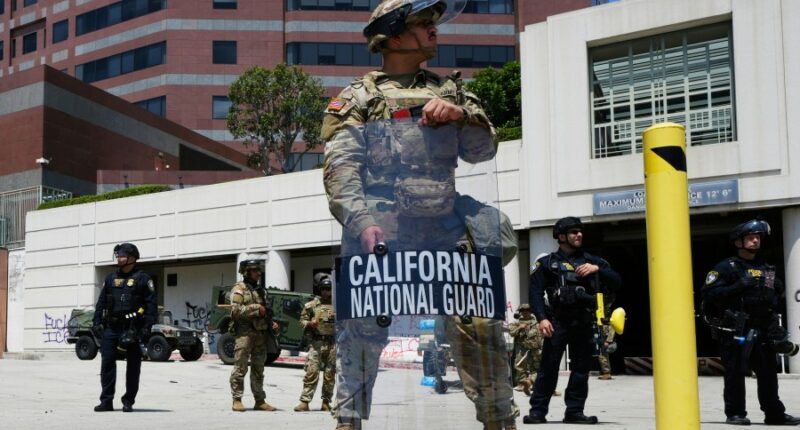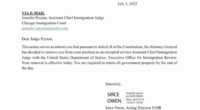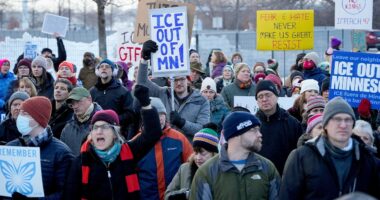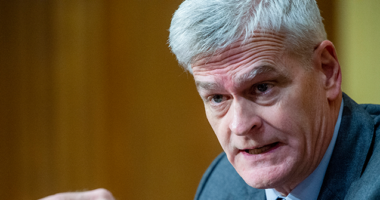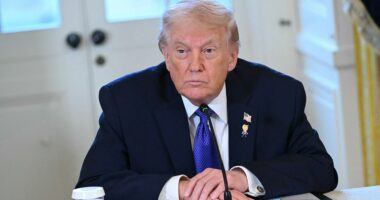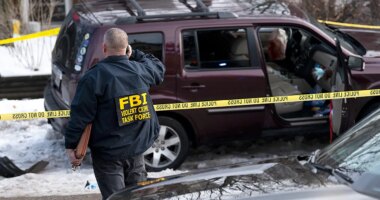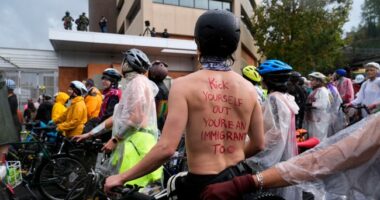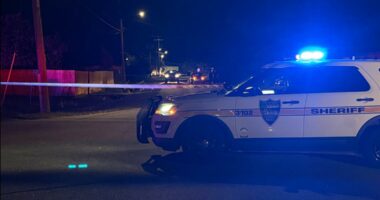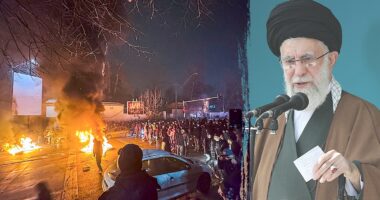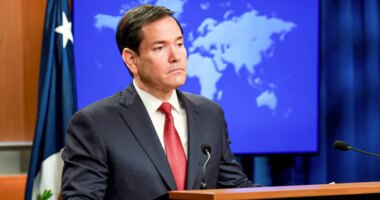Share this @internewscast.com

LOS ANGELES (AP) — The Pentagon announced on Tuesday that it is concluding the assignment of 2,000 National Guard troops in Los Angeles. These troops made up nearly half of the forces deployed to the city in response to protests concerning the Trump administration’s immigration policies.
A combined total of around 4,000 National Guard soldiers and 700 Marines have been stationed in the city since early June. The reasons for the abrupt end of the 60-day deployment were not immediately known, nor was the duration of the remaining troops’ presence in the area.
In late June, the leading military commander responsible for the troops in LA requested from Defense Secretary Pete Hegseth that 200 troops be reassigned to assist with wildfire fighting. This request followed California Gov. Gavin Newsom’s warnings about the Guard’s understaffing as California approached the height of wildfire season.
The end of the deployment comes a week after federal authorities and National Guard troops arrived at MacArthur Park with guns and horses in an operation that ended abruptly. Although the U.S. Department of Homeland Security wouldn’t explain the purpose of the operation or whether anyone had been arrested, local officials said it seemed designed to sow fear.
“Thanks to our troops who stepped up to answer the call, the lawlessness in Los Angeles is subsiding,” Chief Pentagon spokesman Sean Parnell said in a statement in announcing the decision.
On June 8, thousands of protesters took to the streets in response to Trump’s deployment of the Guard, blocking off a major freeway as law enforcement used tear gas, rubber bullets and flash bangs to control the crowd. Photos captured several Waymo robotaxis set on fire.
A day later, police officers used flash bangs and shot projectiles as they pushed protesters through Little Tokyo, where bystanders and restaurant workers rushed to get out of their way.
Mayor Karen Bass set a curfew in place for about a week that she said had successfully protected businesses and helped restore order. Demonstrations in the city and the region in recent weeks have been largely small impromptu protests around arrests.
Bass applauded the troops’ departure.
“This happened because the people of Los Angeles stood united and stood strong. We organized peaceful protests, we came together at rallies, we took the Trump administration to court — all of this led to today’s retreat,” she said in a statement, adding that “We will not stop making our voices heard until this ends, not just here in LA, but throughout our country.”
On Tuesday afternoon, there was no visible military presence outside the federal complex downtown that had been the center of early protests and where National Guard troops first stood guard before the Marines were assigned to protect federal buildings. Hundreds of the soldiers have been accompanying agents on immigration operations.
President Donald Trump ordered the deployment against the wishes of Newsom, who sued to stop it.
Newsom argued that Trump violated the law when he deployed the California National Guard troops despite his opposition. He also argued that the National Guard troops were likely violating the Posse Comitatus Act, which prohibits troops from conducting civilian law enforcement on U.S. soil.
Newsom won an early victory in the case after a federal judge ruled the Guard deployment was illegal and exceeded Trump’s authority. But an appeals court tossed that order, and control of the troops remained with the federal government. The federal court is set to hear arguments next month on whether the troops are violating the Posse Comitatus Act.
The deployment of National Guard troops was for 60 days, though Defense Secretary Pete Hegseth had the discretion to shorten or extend it “to flexibly respond to the evolving situation on the ground,” the Trump administration’s lawyers wrote in a June 23 filing in the legal case.
Following the Pentagon’s decision Tuesday, Newsom said in a statement that the National Guard’s deployment to Los Angeles County has pulled troops away from their families and civilian work “to serve as political pawns for the President.”
He added that the remaining troops “continue without a mission, without direction and without any hopes of returning to help their communities.”
“We call on Trump and the Department of Defense to end this theater and send everyone home now,” he said.
_____
Klepper reported from Washington and Watson from San Diego. Sophie Austin in Sacramento, Amy Taxin in Santa Ana, California, and Hallie Golden in Seattle contributed to this report.
